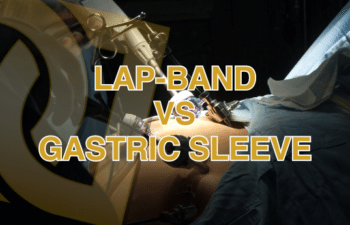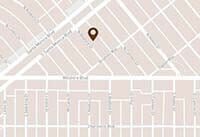
When considering weight loss surgery options, two commonly performed procedures are the gastric sleeve and Lap-Band surgeries. Both aim to help individuals achieve significant weight loss and improve overall health. However, they differ in their approach and long-term outcomes. Let’s compare gastric sleeve and Lap-Band surgery to understand their unique characteristics and benefits.
Procedure
In Lap-Band surgery, a silicone band is placed around the upper part of the stomach, creating a smaller pouch that limits the amount of food the stomach can hold. The band is adjustable and can be tightened or loosened to control food intake. This procedure is less invasive and reversible, offering flexibility to adjust the band or remove it if needed. On the other hand, gastric sleeve surgery involves the removal of approximately 80% of the stomach, creating a tube-shaped stomach that holds significantly less food. This irreversible procedure permanently reduces the stomach’s size, leading to substantial weight loss. The key difference lies in their permanence and complexity, with Lap-Band being a reversible option and gastric sleeve offering greater weight loss potential and hormonal effects on appetite control.
Reversibility
Lap-Band surgery is a reversible procedure, allowing for adjustments or removal of the adjustable band as needed. This feature provides individuals with the ability to adapt the band’s tightness according to weight loss progress or changing health conditions. Additionally, the band can be removed entirely, restoring the stomach to its original form and function if desired. On the other hand, gastric sleeve surgery is irreversible since a significant portion of the stomach is permanently removed. Once the stomach is reshaped into a smaller, tube-like structure, there is no option to reverse the procedure or restore the original stomach size. Therefore, individuals choosing gastric sleeve surgery must be committed to long-term lifestyle changes and the permanent alteration of their digestive anatomy. The choice between the two surgeries depends on an individual’s preferences for permanence and the willingness to undergo reversible adjustments or commit to a more permanent weight loss solution.
Adjustability
Lap-Band surgery involves an adjustable silicone band placed around the upper part of the stomach, healthcare professionals can tighten or loosen this band according to individual needs. By adjusting the band’s tightness, healthcare professionals can control the size of the stomach pouch, restricting the amount of food intake and regulating the digestion rate. This allows for flexible adjustments based on weight loss progress, individual needs, or specific health conditions. The ability to modify the band’s tightness makes Lap-Band a reversible procedure, as the band can be removed or adjusted further to adapt to the patient’s weight loss journey. On the other hand, gastric sleeve surgery does not have the feature of adjustability. The procedure involves permanently removing a large portion of the stomach to create a smaller, tube-shaped stomach. Unlike Lap-Band, once the stomach is reshaped during gastric sleeve surgery, the alteration is not reversible. The procedure provides a more permanent solution to weight loss, and the stomach size remains fixed without the option to make further adjustments.
Weight Loss Potential
Lap-Band surgery typically results in slower and less dramatic weight loss compared to gastric sleeve. While it can help individuals lose excess pounds, the weight loss process may take longer and require more patient effort. On the other hand, gastric sleeve surgery offers greater weight loss potential and is known for achieving more substantial and sustained results. With the removal of a large portion of the stomach, the reduced stomach size restricts food intake, leading to significant weight loss within the first year after the procedure. Patients can lose 60-70% of their excess body weight, making gastric sleeve an attractive option for those with significant weight loss goals. The choice between the two surgeries depends on an individual’s weight loss objectives, commitment to long-term lifestyle changes, and their preference for the speed and extent of weight loss they desire to achieve.
Effect on Hormones
In Lap-Band surgery, the procedure does not significantly affect hunger hormones. As a result, some patients may experience challenges in appetite control and find it difficult to sustain weight loss over the long term. On the other hand, gastric sleeve surgery has a more substantial impact on hunger hormones. With the removal of a portion of the stomach, the surgery alters the production of certain hormones, promoting a feeling of fullness and reducing appetite. This hormonal effect can lead to improved appetite control and better long-term weight loss outcomes. As such, individuals looking for enhanced appetite regulation and hormonal support in their weight loss journey may find gastric sleeve surgery more suitable. However, the choice between the two surgeries should be made in consultation with a healthcare professional, taking into account individual health needs and preferences.
Nutritional Deficiencies
In Lap-Band surgery, an adjustable band restricts the stomach’s size while maintaining the intact digestive system. Consequently, the risk of nutritional deficiencies may decrease since the small intestine still absorbs food as usual. However, some individuals may need to make mindful dietary choices to ensure they obtain sufficient nutrients, especially if they consume smaller food amounts due to the band’s restriction. In contrast, gastric sleeve surgery entails removing a large portion of the stomach, permanently altering digestive anatomy. The reduced stomach size can lead to diminished nutrient absorption, especially for vitamins and minerals primarily absorbed in the removed stomach part. Therefore, individuals undergoing gastric sleeve surgery must adhere to dietary guidelines and take recommended supplements to prevent nutritional deficiencies. Healthcare professionals must regularly monitor patients to ensure they receive the necessary nutrients for optimal health and well-being. Consequently, considering the potential nutritional implications of both surgeries becomes crucial when making an informed decision about the most suitable weight loss procedure.
Dietary and Lifestyle Changes
Dietary and lifestyle changes play a crucial role in the outcomes of both Lap-Band and gastric sleeve surgeries. In Lap-Band surgery, patients are encouraged to make adjustments such as adopting smaller portion sizes, eating slowly, and thoroughly chewing their food to accommodate the restricted stomach size. It’s also crucial to focus on nutrient-dense foods to ensure the intake of essential vitamins and minerals. Similarly, gastric sleeve patients must adhere to strict dietary guidelines, which often include consuming smaller, more frequent meals to prevent overeating and enhance digestion. Both procedures necessitate a focus on maintaining balanced, nutritious diets and incorporating regular physical activity as an essential component of the weight loss and overall health journey. Collaborating with healthcare professionals and dietitians is key in developing personalized meal plans and exercise routines aligned with individual weight loss goals and health needs. Embracing these dietary and lifestyle changes is fundamental for achieving not only successful but also sustainable weight loss and the long-term maintenance of health and well-being.
The choice between Lap-Band and gastric sleeve surgery depends on an individual’s weight loss goals, health condition, commitment to long-term lifestyle changes, and preferences for permanence or reversibility. Both procedures have their unique advantages and considerations, and consulting with a healthcare professional is essential to make an informed decision tailored to the individual’s specific needs and circumstances.
Posted on behalf of Dr. David G. Davtyan MD, FACS, FICS





